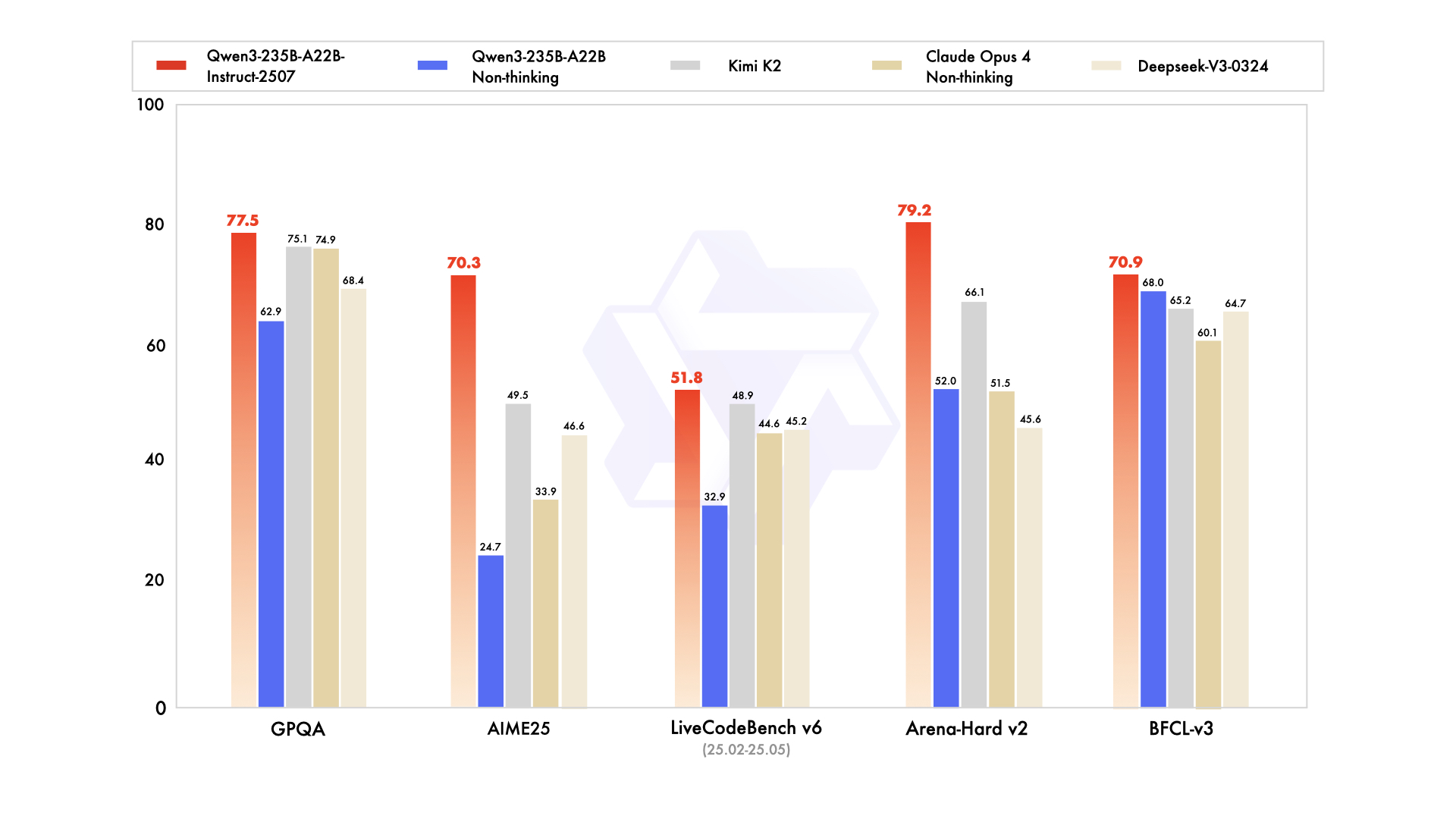See our collection for all versions of Qwen3 including GGUF, 4-bit & 16-bit formats.
Learn to run Qwen3 correctly - Read our Guide.
Unsloth Dynamic 2.0 achieves superior accuracy & outperforms other leading quants.
See our collection for all versions of Qwen3 including GGUF, 4-bit & 16-bit formats.
Learn to run Qwen3 correctly - Read our Guide.
Unsloth Dynamic 2.0 achieves superior accuracy & outperforms other leading quants.
 ## Highlights
We introduce the updated version of the **Qwen3-235B-A22B non-thinking mode**, named **Qwen3-235B-A22B-Instruct-2507**, featuring the following key enhancements:
- **Significant improvements** in general capabilities, including **instruction following, logical reasoning, text comprehension, mathematics, science, coding and tool usage**.
- **Substantial gains** in long-tail knowledge coverage across **multiple languages**.
- **Markedly better alignment** with user preferences in **subjective and open-ended tasks**, enabling more helpful responses and higher-quality text generation.
- **Enhanced capabilities** in **256K long-context understanding**.

## Model Overview
**Qwen3-235B-A22B-Instruct-2507** has the following features:
- Type: Causal Language Models
- Training Stage: Pretraining & Post-training
- Number of Parameters: 235B in total and 22B activated
- Number of Paramaters (Non-Embedding): 234B
- Number of Layers: 94
- Number of Attention Heads (GQA): 64 for Q and 4 for KV
- Number of Experts: 128
- Number of Activated Experts: 8
- Context Length: **262,144 natively**.
**NOTE: This model supports only non-thinking mode and does not generate ``
## Highlights
We introduce the updated version of the **Qwen3-235B-A22B non-thinking mode**, named **Qwen3-235B-A22B-Instruct-2507**, featuring the following key enhancements:
- **Significant improvements** in general capabilities, including **instruction following, logical reasoning, text comprehension, mathematics, science, coding and tool usage**.
- **Substantial gains** in long-tail knowledge coverage across **multiple languages**.
- **Markedly better alignment** with user preferences in **subjective and open-ended tasks**, enabling more helpful responses and higher-quality text generation.
- **Enhanced capabilities** in **256K long-context understanding**.

## Model Overview
**Qwen3-235B-A22B-Instruct-2507** has the following features:
- Type: Causal Language Models
- Training Stage: Pretraining & Post-training
- Number of Parameters: 235B in total and 22B activated
- Number of Paramaters (Non-Embedding): 234B
- Number of Layers: 94
- Number of Attention Heads (GQA): 64 for Q and 4 for KV
- Number of Experts: 128
- Number of Activated Experts: 8
- Context Length: **262,144 natively**.
**NOTE: This model supports only non-thinking mode and does not generate ``